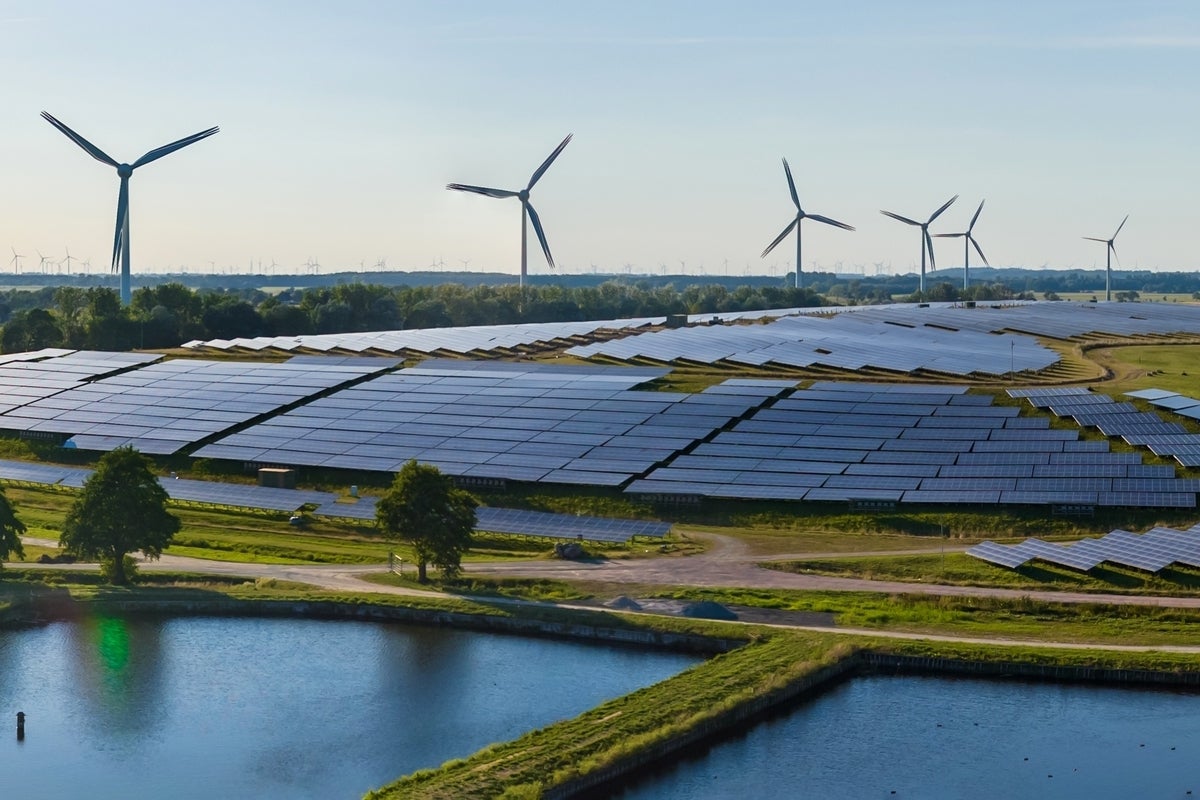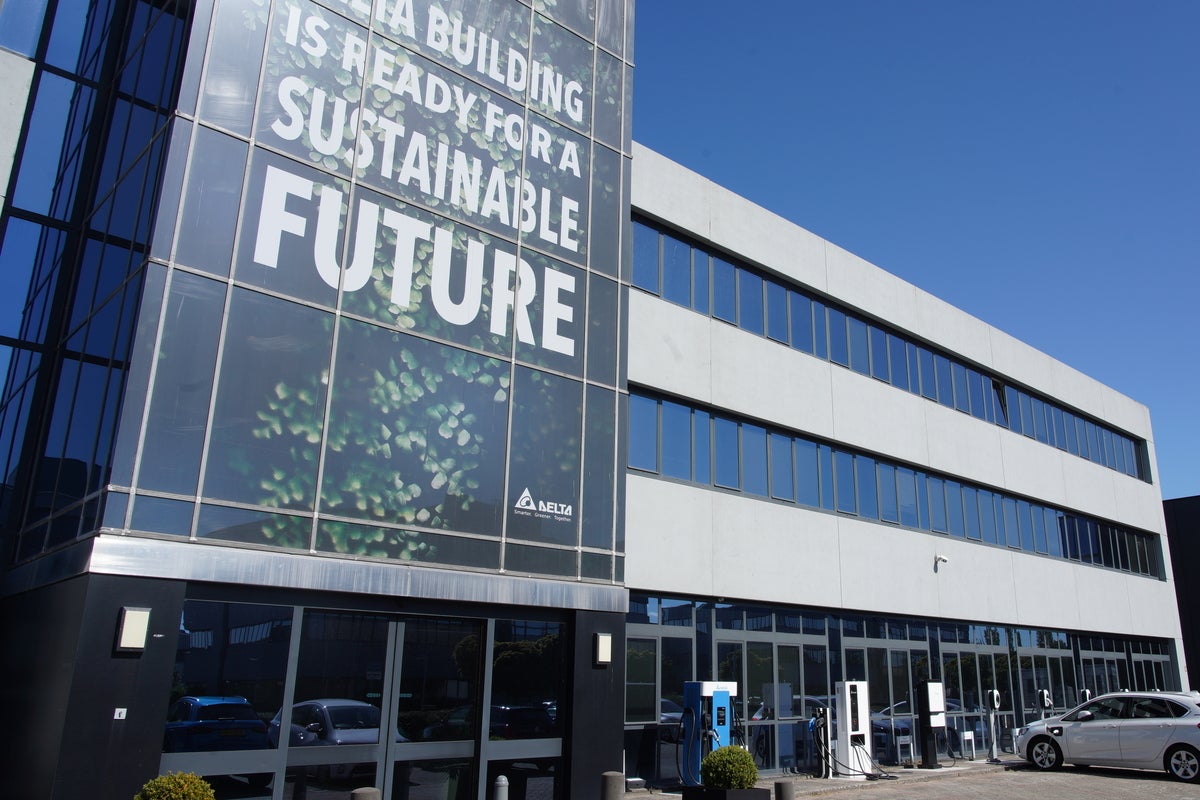How to embed renewable energy use into a company’s sustainability roadmap
THE ARTICLES ON THESE PAGES ARE PRODUCED BY BUSINESS REPORTER, WHICH TAKES SOLE RESPONSIBILITY FOR THE CONTENTS

Delta Electronics is a Business Reporter client.
Dalip Sharma of Delta Electronics talks about the lessons his company learned in its journey to reduce its carbon emissions
A milestone year is coming for the EU’s green ambitions: 2025 will mark not just the halfway point on its journey to reach net-zero greenhouse gas emissions by 2050, but will also be the first year when companies report on their efforts to reduce carbon emissions under the EU’s Corporate Sustainability Reporting Directive. For many, getting ready for these new reporting requirements will be a tall order, requiring them to get on top of their own sustainability improvements as well as those along their supply chain.
Corporate climate initiatives can, however, inject life into a company’s transition to sustainability, says Dalip Sharma, President and General Manager of Delta Electronics EMEA. Delta itself is a member of RE100, which brings together companies aiming to source 100 per cent of their energy from renewables, as well as several other sustainability groups. Below, Sharma explains how this enables Delta to learn from others as much as share its own learnings with its peers.
How would you describe Delta’s net-zero journey to date?
Delta has long been committed to combating climate change by actively pursuing energy conservation and carbon reduction.
It goes back to our founder, Bruce Cheng, who set up Delta in Taiwan in 1971. Taiwan went on to evolve into a world leader in electronics and technology. But rapid economic growth led to energy shortages, which Taiwan sought to meet by expanding its fleet of fossil-fuel-fired power plants. This took a significant environmental toll.
Mr Cheng believed that Delta should grow its business responsibly and take care of the environment by making its operations and products energy-efficient. This is how sustainability became embedded in our core values.
Since then, Delta has been listed in the Dow Jones Sustainability Indices for 12 consecutive years and received the highest overall score in the electronics equipment, instruments and components industry for seven years in a row.
In 2015, we became the first Taiwanese company to pass the Science Based Targets Initiative’s (SBTi) evaluation. At the time, we set out to more than halve our carbon footprint by 2025. By 2021 – four years ahead of schedule– we had achieved a 71 per cent reduction. We are now aiming to lower our emissions by a further 90 per cent across Scopes 1-3 by 2030.
How has your membership of RE100 affected your efforts to reach net zero?
Like many of our peers, our journey towards climate neutrality has had its ups and downs. And this is where industry initiatives such as RE100 come in. They serve as guides and guardrails as well as providing a forum for learning and support.
We were the first company in Taiwan’s high-tech manufacturing industry to commit to achieving the RE100 target by 2030. Its mission connects deeply with our company’s own, which is to provide innovative, clean, and energy-efficient solutions for a better tomorrow. RE100 was also chosen because for Delta, as an energy solutions provider, electricity consumption is our single largest source of carbon emissions. This makes transitioning to 100 per cent renewable energy an utmost priority.
Since joining RE100 in 2021, we’ve learned a lot from our fellow members about their sustainable sourcing strategies. In turn, they are keen to learn from our experience: our chief sustainability officer and corporate ESG team have presented at more than 1,000 events to date.
As part of your RE100 commitment, you implemented an internal carbon pricing scheme. How does this work?
Our internal carbon pricing mechanism puts a price tag on carbon emissions from non-renewable electricity used at offices, plants and R&D centres worldwide.
We set a consistent internal carbon price of $300 per metric ton of carbon emissions, based on both internal and external costs to our offices and production sites. The fees collected all go into a “green fund” and can be used to finance sustainability-linked projects throughout our organisation that will advance our journey toward decarbonization.
How are you progressing toward the goal of sourcing 100 per cent renewable electricity by 2030?
Globally, Delta’s target is to reach 80 per cent renewable electricity by 2025 and 100 per cent by 2030. Last year, we got to 63 per cent, up from 46 per cent in 2020.
In the Europe, Middle East and Africa region, our ambition is to use only renewable electricity by 2025. In 2022, we reached 93 per cent.
Wherever possible, we install solar PV panels on our buildings to cover as much of our consumption as we can.
Where self-generation is not possible, we opt for a mix of sourcing strategies, such as closing power purchase agreements with local green electricity generators and choosing green tariffs offered by the utility supplier.
While we plan to increase our proportion of self-generated solar power long-term, improving our energy efficiency remains our foremost priority. To date, Delta has built 32 certified green buildings and two high-efficiency data centres.
Delta’s own energy-saving products contribute substantially to our energy efficiency. For example, at our EMEA headquarter in the Netherlands, we use our Energy Storage Systems to store excess solar energy that we generate, and then redeploy it during peak hours. This has led to a 16 per cent saving on our energy costs.

What are the three things you would recommend to companies who are only starting out on this journey and have to act fast to meet tight regulatory deadlines?
Raising internal awareness of sustainability is vital. Training can help your employees better envision the role they have to play in making the organisation more sustainable – and make them see that they will ultimately benefit.
Setting key performance indicators ensures that progress, however incremental, can be tracked and that a feedback loop is in place. Monetary measures such as internal carbon pricing or incentives for making energy savings can also boost commitment and accelerate the transition.
Finally, joining corporate climate initiatives such as SBTi and RE100, and others relevant to your sector, is extremely beneficial because it means you don’t face all the challenges on your own but have a supportive network around you.
For more information, visit www.delta-emea.com.

Bookmark popover
Removed from bookmarks